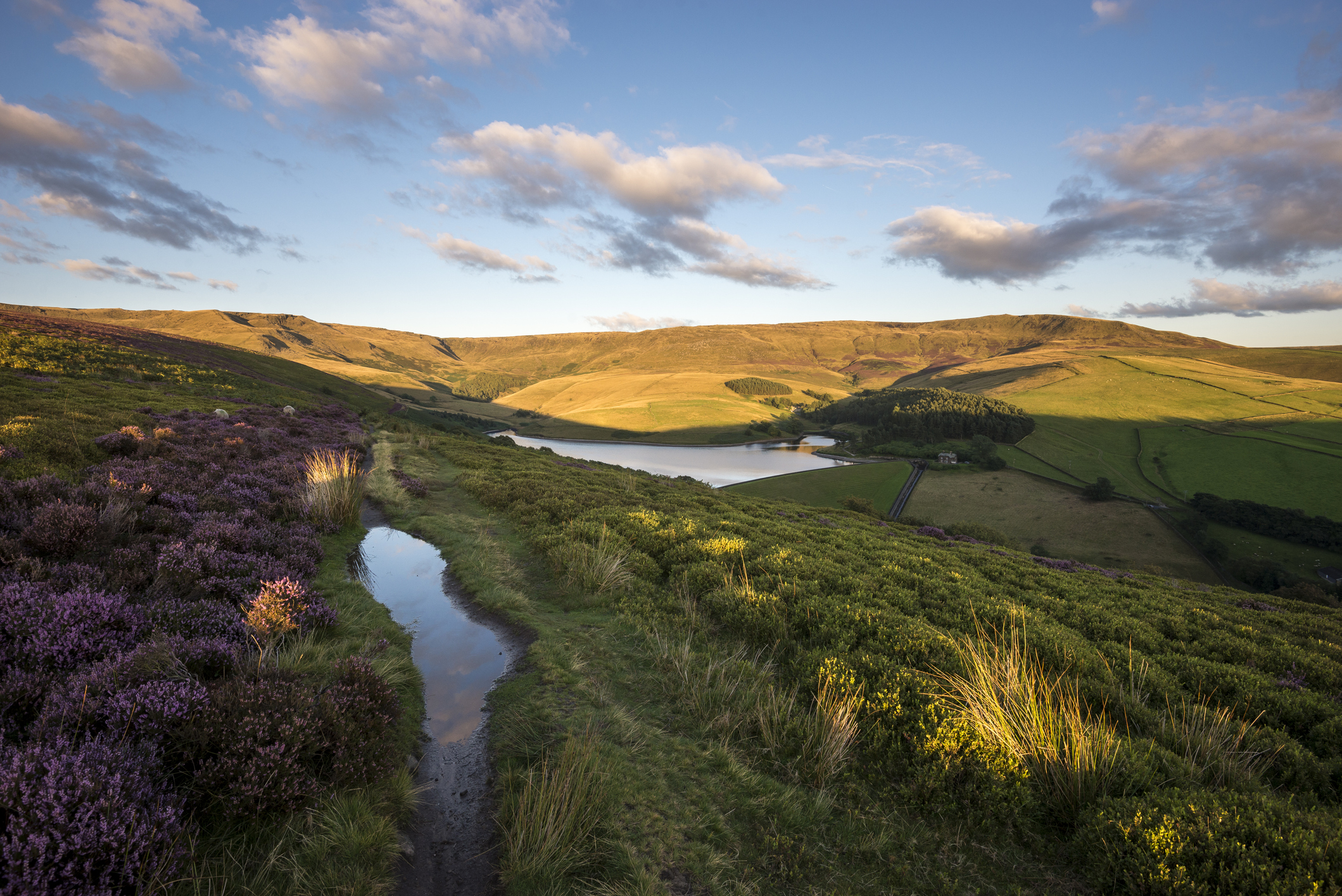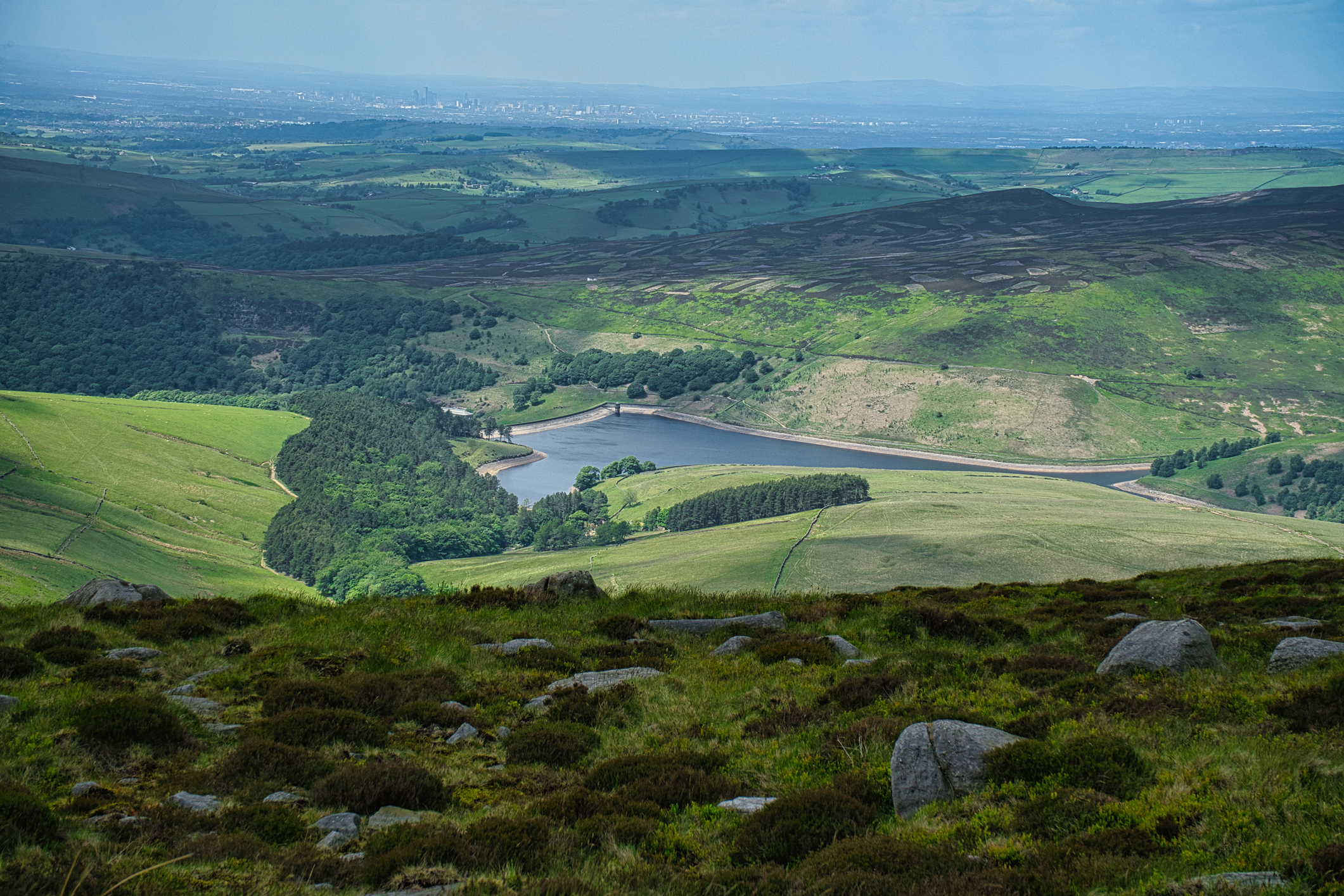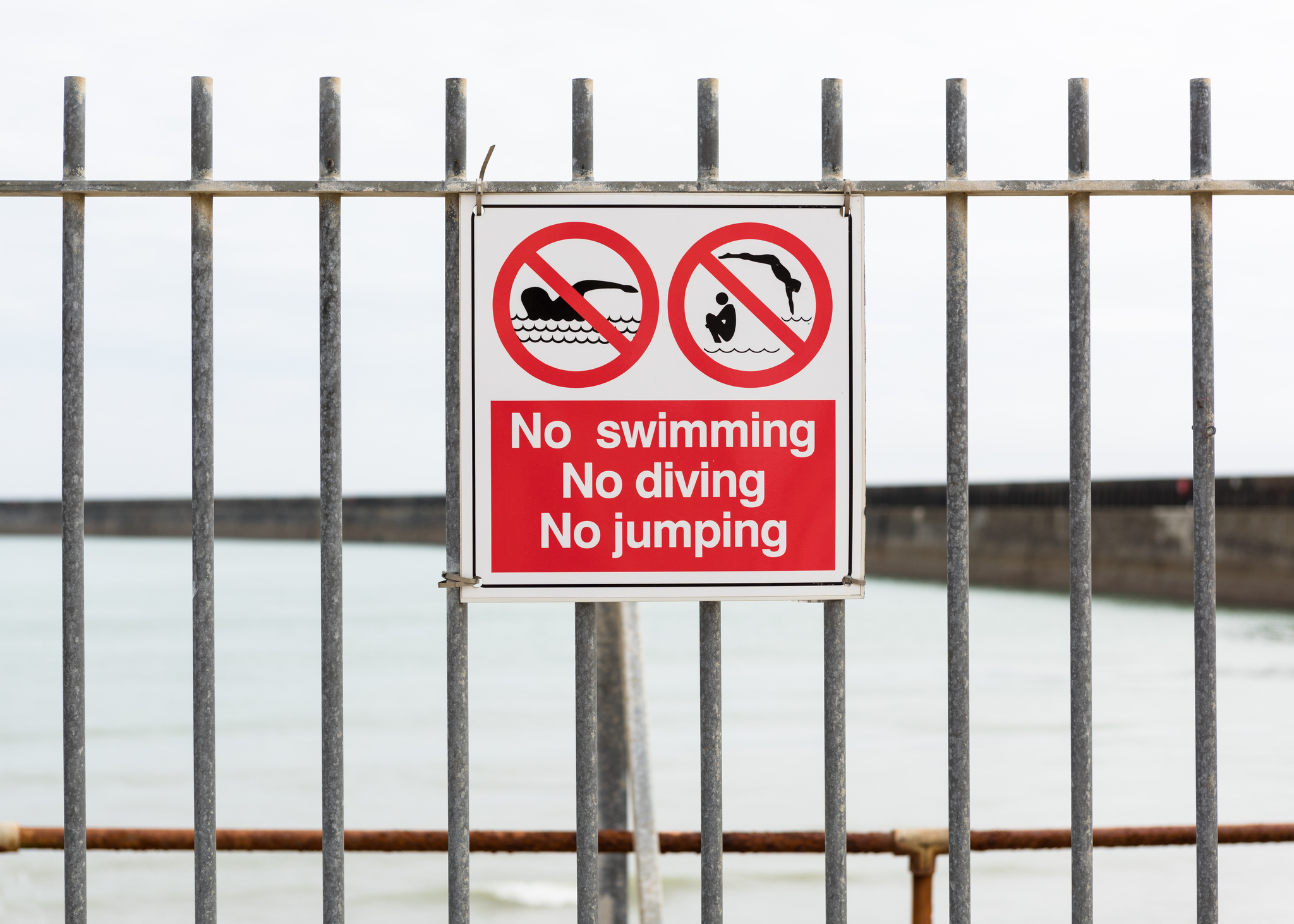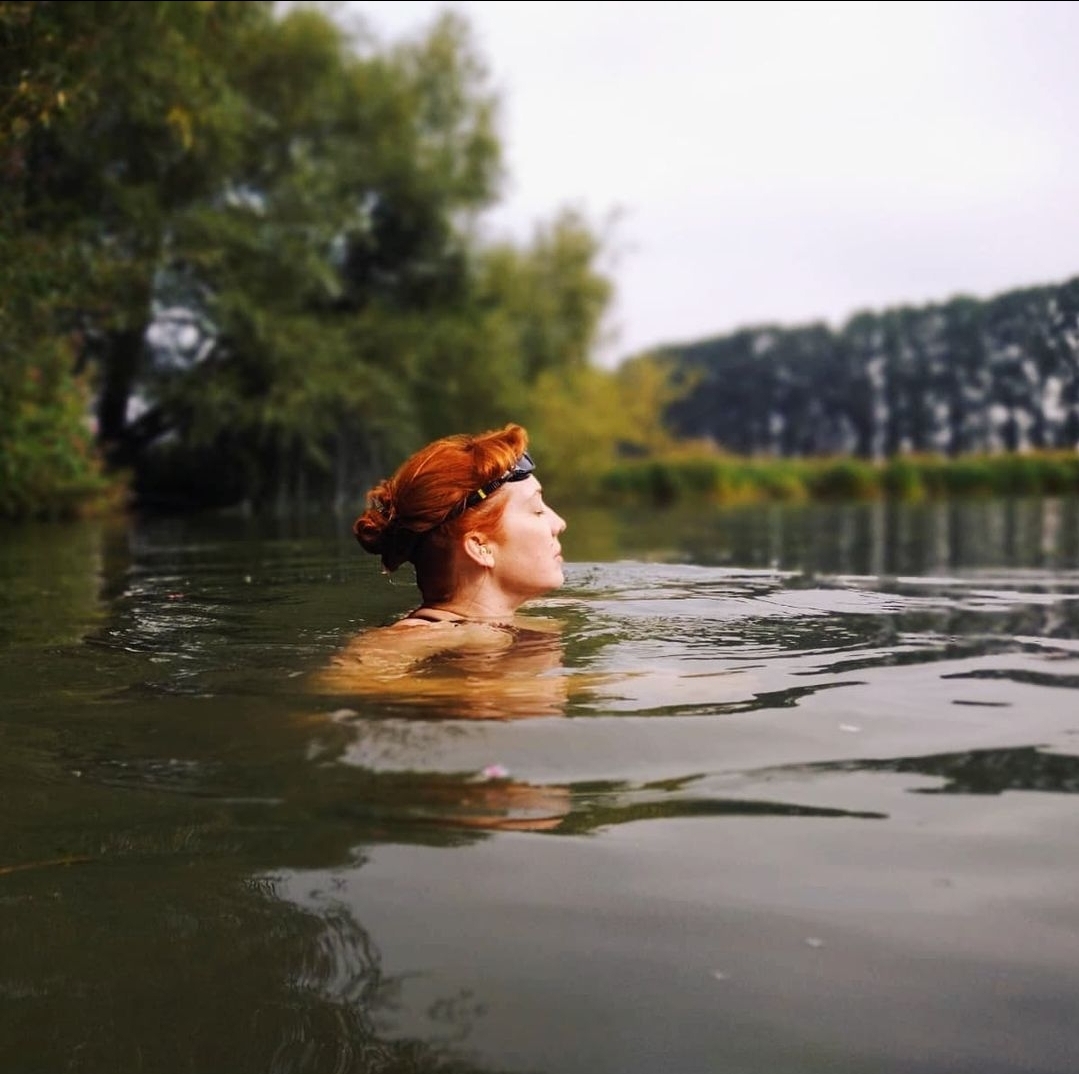"The right to swim is not just legal permission" – the wild swimmers planning their own Kinder trespass
Hundreds expected to break the law in protest at the historic Peak District site and other reservoirs around the UK

All the latest inspiration, tips and guides to help you plan your next Advnture!
You are now subscribed
Your newsletter sign-up was successful
Wild swimmers will break the law en masse this week by swimming in protest at reservoirs all over the UK, with the biggest event expected at the site of the original Kinder Trespass.
Campaigners are calling for open access to the 2,000 reservoirs that span England and Wales after sewage dumping in lakes and rivers left many too dangerous to swim in.
Now hundreds of swimmers are expected to descend on Kinder on Sunday April 28, to swim in the reservoir there, even though it's illegal to do so. The campaign is being spearheaded by the Outdoor Swimming Society, with support from outdoors brand Alpkit.
English and Welsh water companies have a legal duty to provide public access to reservoirs and many offer fishing and boating year round. But they've shied away from allowing swimming due to fears over liability if swimmers are injured or drowned.
There's no question whether there are hidden dangers in reservoirs. Buildings, underwater pumps, sluices and aerators should all never be approached (Read more about how to stay safe in open water here, and scroll to the end for more specific safety information about swimming in reservoirs).
However, in Scotland, nearly all of the country's reservoirs have been open for public swimming for more than 20 years, with minimal safety guidance issued. Campaigners say they just want the same rights in England and Wales.

The OSS is calling on people all over the UK to swim in a reservoir on Sunday to bolster the protest.
All the latest inspiration, tips and guides to help you plan your next Advnture!
OSS founder Kate Rew, said: "Our inland access group has been supporting local groups working on the right to swim in their area since 2006
"I would say we have been giving people permission to swim since 2006 - the right to swim is not just legal permission, it's also a feeling that it is possible, and that you are entitled."
In a recent Instagram post (scroll down to see it in full), Rew shared a picture of herself swimming somewhere she didn't name, but said in the caption: "There are so many swimmers, and not enough access.
"Swimming access to reservoirs is an easy win in England and Wales, meaning water authorities honour the agreement to open their land to recreation (a condition made when water was privatised), and hopefully giving swimmers access to better water quality than we sometimes finds in our rivers and seas."
Speaking to Advnture, Rew, author of the Outdoor Swimmers' Handbook, added: "Reservoirs are, in the main, big still bodies of water with similar risks to a lake - in Scotland swimmers gained access to 820 reservoirs overnight when they were granted the right to roam, which tells us all something about the ideas we have of dangers in England and Wales - of sucky pipes and unknown currents - as being misrepresentations of the facts.
"For example, reservoirs are not freezing even in summer - a common statement about risk! They are subject to the same laws of thermal dynamics as any other body of water: the sun warms them. What they are is deep, sometimes, and to survive in deep water you need to be able to swim.
"Avoid the business end of reservoirs - the walls and overflows. If there is any underwater machinery it will be marked by something above water."
Alpkit CEO David Hanney said: "Alpkit and The Outdoor Swimming Society have been working together for over a decade. The right to roam, swim access and climbing access are all issues we feel strongly about.
"Alpkit is rooted in Hayfield and we actively promote trespass and experiencing our wild places. We're delighted to support the OSS with this campaign and we'll also be in Hayfield for their Trespass Festival on Saturday 27th. We know that with rights come responsibilities and we looked beyond Leave No Trace to leave our wild places in a better way than we find them."
While there are likely to be hundreds of swimmers at the Kinder protest this weekend, many will not feel comfortable trespassing to swim at other times when they don't have large numbers on their side.
But Rew said: "Trespass is not classed as a criminal act , so it is outside of police jurisdiction and you will not be arrested.
"You might be challenged by the landowner. If challenged, stay calm and polite, explain that you are doing no harm and are being responsible. Refer to the Outdoor Swimmers Code to dispel concerns about responsibility, safety, respect."
The swim trespass this week coincides with the anniversary of the Kinder Trespass, which happened on Sunday April 24, 1932. Some 400 working class walkers, frustrated by the refusal of wealthy landowners to let them onto their land, trespassed on Kinder Scout, the highest point in the Peak District.
Five men were arrested and jailed, for up to six months. This sparked a huge surge in public sympathy and the Rights of Way act was passed just a few months later. It allowed people to claim any route as a public path if they could prove it had been used for 20 years without interruption or challenge.
Since then, further legislation has led to the creation of the UK's national parks, and more access rights for walkers. But wild swimmers say they have been left behind, with sites that seem ideal for them fenced off, or covered in signs warning them to stay away.
There are many areas of the UK with little access to wild swimming spots, but reservoirs nearby that campaigners say would plug that gap.
A post shared by Kate Rew (@kate_rew)
A photo posted by on
Kinder reservoir holds reserves of public drinking water and is owned by United Utilities. The company supplies drinking water and processes waste water for a large part of north-west England.
While it is illegal to swim in most of the reservoirs in England and Wales, there are some that are open for public swimming and campaigners say this should be extended to Kinder and other similar sites. Sparth Reservoir in Huddersfield has free open swimming access, while Rutland Water funds its summer season lifeguarded bathing beach with income from a paid carpark.
A United Utilities spokesperson told Advnture: “We recognise the right to protest, but we have to remind anyone thinking of taking a dip that the reason we don’t allow swimming is because it is very dangerous. Kinder reservoir is an operational site with deep, cold water and hidden hazards. The reservoir is constantly supplying water for the Stockport area so there are also strong currents below the surface."

For swimmers aiming to swim in their local reservoir on the 28th, or at any other time, there are definitely extra safety considerations to bear in mind.
- The sides of reservoirs are often steep, making it relatively easy to get into water but harder to get out. Always establish a safe exit point before getting in.
- Never jump into a reservoir. There may be hidden pipes and other objects.
- Avoid buoys, which may mark the site of aerators. Aerators are designed to keep the water ecologically balanced by pumping in air, but their presence also means the water may be less dense, making it harder than normal for swimmers to stay afloat.
- Stay away from dams and towers. These may have underwater structures nearby, but, more importantly, pumps near reservoir towers can actually pull swimmers under, and dams have spillways where water is released. Both pose a real danger.
- Reservoirs are deep, but there may also be unexpected changes of depth.
- Blue green algae can build up at the edges of reservoirs and this is a cyanobacteria that can be very dangerous to humans and animals. Don't swim anywhere near it.
- As well as all these considerations, there are some other factors to take into account whenever going wild swimming, so make sure you read our guide on how to stay safe in open water.
- The best wild swimming gear: what to wear and what to take

Rosee Woodland developed a taste for adventure at a young age, growing up in a home where camping was the default holiday, and good weather was a vacation bonus rather than a necessity. After bike-packing the length of France in her mid teens with her family, she started to undertake solo forays in her 20s, usually without the benefit of much technical gear at all. Happily, the years she later spent as a mountain biking journalist eventually gave her an appreciation of decent kit! These days she loves a water-based adventure, and is an outdoor swim coach, and a keen free diver. She has a soft spot for Northern Ireland's Mourne mountains, and can also be found hiking and kayaking in Pembrokeshire and the South West of the UK.

